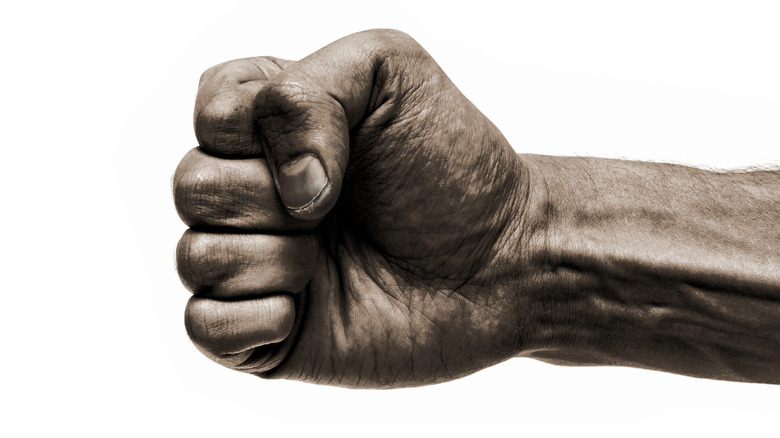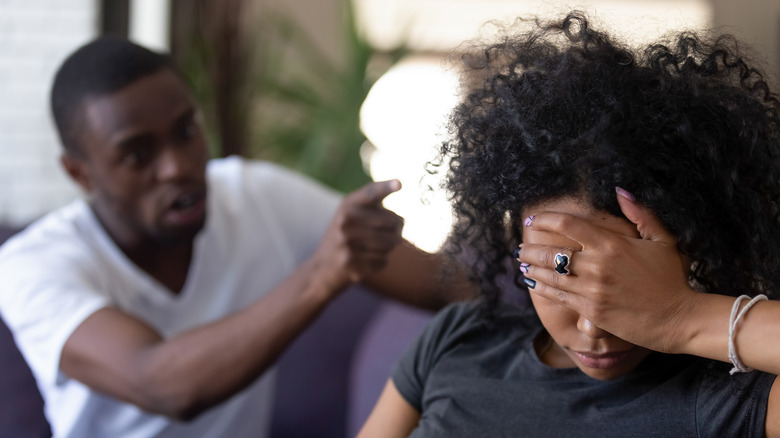What To Do If You See Or Suspect Domestic Violence
Domestic violence is not newsworthy. You won't see it in the news when any of the 10 million women and men in the U.S. are physically abused by a romantic partner — a statistic reported by the National Coalition Against Domestic Violence. Domestic violence only makes the news if the abuse turns to murder, even though it's so common that it happens to almost 20 people per minute in America. Domestic violence is one of those dark aspects of humanity that too often goes underreported, unrealized, or even ignored even as it continues to cycle through generations of families.
There are myriad reasons for the proliferation of domestic abuse. From the victim's side, things like fear, threats, manipulation, psychological control, shame, diminished self-esteem — and even love for the abuser — keep people in abusive relationships. As for the abusers, according to Psychology Today, they lash out at their intimate partners because they never learned to deal with emotions like "disappointment, hurt, and shame," and their default is to hurt whoever causes those emotions. Abusers may have entitlement issues, a lack of empathy, histories of trauma from abuse, or they just keep getting away with it. As Psychology Today reported, "Abusive partners behave abusively, to some extent, because they can."
But people suffering from abusive relationships aren't the only ones who can do something to stop it. Even though it's hard to know how to get involved, there are ways that outsiders to an abusive relationship can help.
If you or someone you know is dealing with domestic abuse, you can call the National Domestic Violence Hotline at 1−800−799−7233. You can also find more information, resources, and support at their website.
How to help depends on the situation
There are lots of variables to consider if you know about a domestic violence situation. According to the Pennsylvania Coalition Against Domestic Abuse, if there is an immediate situation in which violence is occurring, they recommend calling 911 and not intervening personally to avoid getting hurt yourself. PCADA says that in a lot of situations, victims of domestic abuse don't want the police involved. But if it's a dangerously violent moment, then definitely call the police for help and be prepared to advocate for what you witnessed. In order to really help the abused person, police need your statement, and you might be called to testify in court, according to PCADA.
If it's a situation where you suspect someone you know is being abused, you can broach them with questions that give them the opportunity to open up about what is happening in their relationship. Per the PCADA's suggestions, it can be as simple as, "How is your relationship going?" to asking more directly, "Has your partner put their hands on you to hurt you in any way?" and "Do you feel safe at home?"
Ultimately, the PCADA says that even if you find out there is abuse, the best thing to do is encourage them to get in touch with a local domestic violence program where there are resources to get them out of their abusive situation. This is especially important because leaving that situation is the most dangerous time for a victim of domestic violence.

